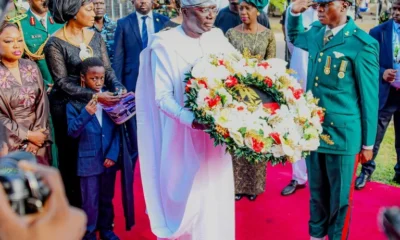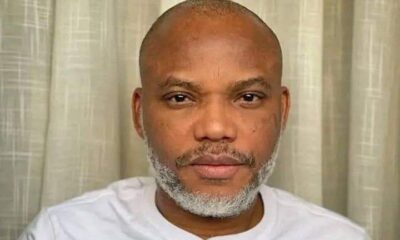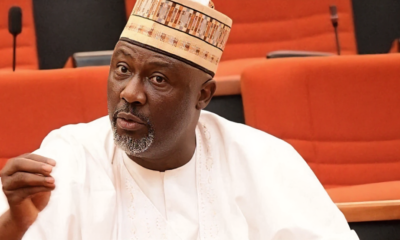Politics
Summary Of The National Confab 2014 Recommendations
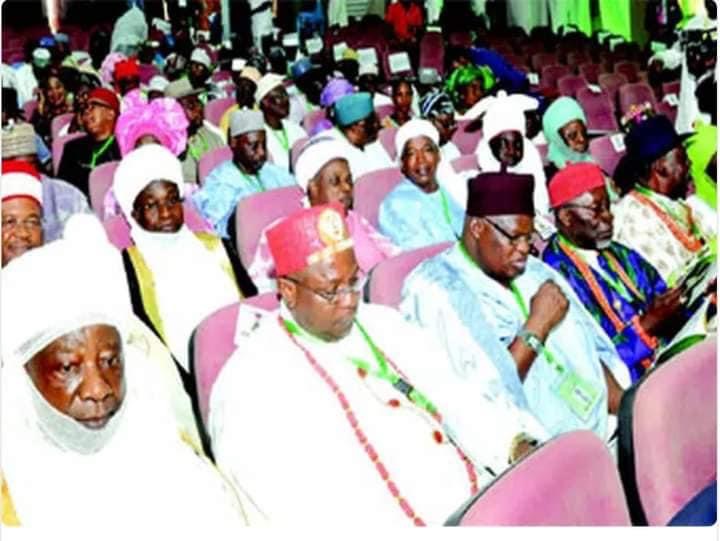
– 1. Qualification to Contest For President
Anybody aspiring to become the country’s President must be a degree holder.
– 2. Rotation of Presidency
Rotation of Presidency between the North and South and governorship among the three senatorial districts of each state.
– 3. Decamping (Cross-Carpeting)
Any elected official, executive or legislative, who carpet-cross, regardless of the reasons for such, shall automatically forfeit his seat.
– 4. Mineral Exploration
Excess revenue should be used for exploration of mineral resources in every part of the country.
– 5. Acting President
Where the President dies in office or incapacitated, impeached or where he resigns, the Vice President shall operate in acting capacity for a period of 90 days during which an election to the same office would be conducted.
– 6. Rotation of the Presidency
When a president leaves under any of the circumstances stated above, another president would be elected from the same zone where the previous one came from.
– 7. Open Grazing
Cattle routes and grazing reserves be phased out to lay emphasis on ranching.
– 8. New State For South East
There shall be created an additional state for the South-East Zone to make the zone have equal number of states with the other zones except the North West which has seven.
– 9. The States For The Regions
Creation of another 18 new states (three per geo-political zone, this means SE will now have 4).
– 10. Fiscal Sharing Formula
The sharing of the funds to the Federation Account among the three tiers of government should be done in the following manner: Federal Government – 42.5%, State Governments – 35% and Local Governments 22.5% as opposed to the prevailing 52.68 %, 26.72% and 20.60% respectively.
– 11. Form of Government
Modified Presidential System, a home-made model of government that effectively combines the presidential and parliamentary systems of government. The president shall pick the vice president from the Legislature.
– 12. Appointment of Ministers
The President should select not more than 18 ministers from the six geo -political zones and not more than 30% of his ministers from outside the Legislature. Reduce Cost of governance by pruning the number of political appointees and using staff of ministries where necessary.
– 13. Legislature
The legislature should remain Bi-cameral but all elected members of the legislative arms of all the tiers of government should serve on part-time basis.
– 14. Local Government Autonomy
Local Government will no longer be the third tier of government. The federal and states are now to be the only tiers of government. States can now create as many local governments as they want.
The Joint State/Local Government Account be scrapped and in its place the establishment of a State RMAFC with representatives of LG and a Chairman nominated by the Governor.
The Constitution should fix the tenure for Local Government Councils at three years. Conference recommends the scrapping of State Independent Electoral Commission, SIECs.
– 15. Immunity
The immunity clause should be removed if the offences attract criminal charges to encourage accountability by those managing the economy.
– 16. Independent Candidacy
Every Nigerian who meets the specified condition in the Electoral Act should be free to contest elections as an independent candidate.
– 17. Anti-corruption
Anybody arraigned before the court by EFCC, ICPC and by any law enforcement agencies, the accused person will be regarded as guilty, unlike the present situation where he is innocent until proven guilty.
Plus, complete abolition of the concept of plea bargain by the Federal government
– 18. State Police
States who want it should have it.
– 19. National Anthem
The old National Anthem should be re-introduced
– 20. Religion Taxes and Pilgrimages
Religious institutions to pay tax, abolition of pilgrimage sponsorship
– 21. Mission Schools
Public schools taken over by various state governments across the country forty two years ago would henceforth be returned to the religious missions which were the original owners
Politics
Electoral Reform: Dino alleges senate’s plot to rig 2027 election
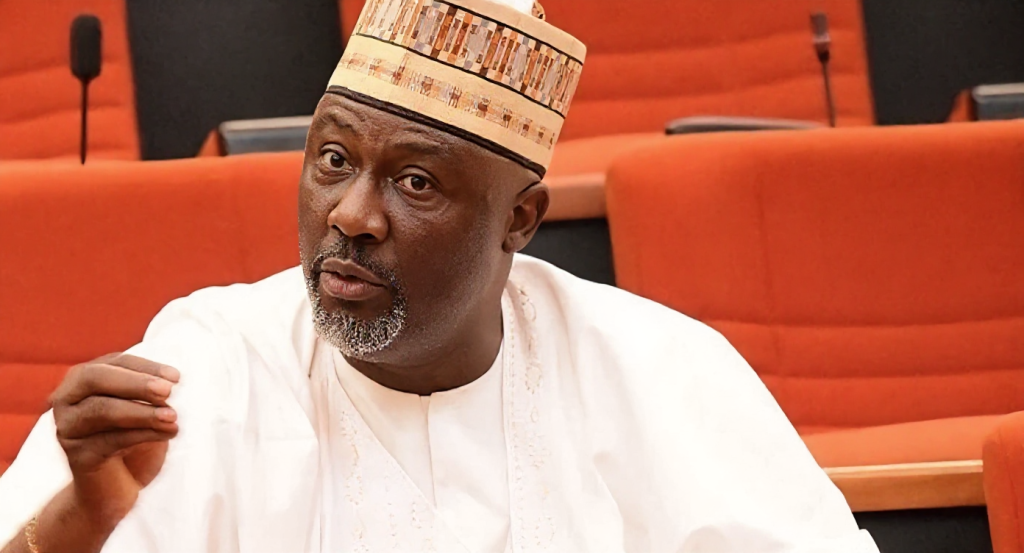
Former lawmaker, Dino Melaye Esq, has raised concerns over the Senate’s reported rejection of the electronic transmission of election results.
The move, according to Melaye, is a clear endorsement of election rigging and an indication of a sinister plan to rig the 2027 elections.
In a statement on Friday, the former lawmaker criticized the Senate’s decision, stating that it undermines the credibility of the electoral process.
The African Democratic Congress, ADC chieftain, also stated that the move opens the door for electoral manipulation and fraud.
He further warned that the rejection of electronic transmission of results is a step backwards for democracy in Nigeria.
Melaye called on lawmakers and citizens to stand up against “this blatant attempt to undermine the will of the people and ensure that future elections are free, fair, and transparent”.
Politics
Electoral Act: Nigerians have every reason to be mad at Senate – Ezekwesili
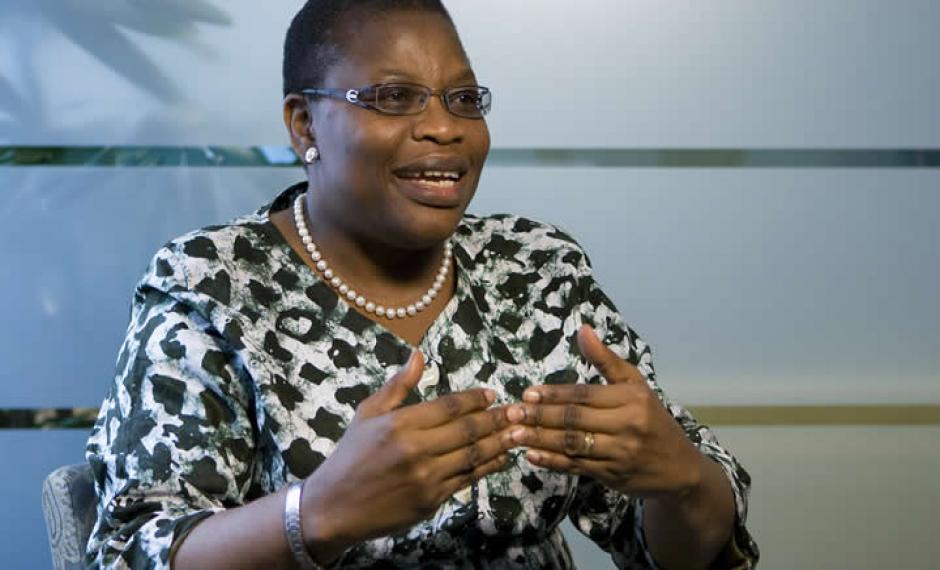
Former Minister of Education, Oby Ezekwesili, has said Nigerians have every reason to be mad at the Senate over the ongoing debate on e-transmission of election results.
Ezekwesili made this known on Friday when she featured in an interview on Arise Television’s ‘Morning Show’ monitored by DAILY POST.
DAILY POST reports that the Senate on Wednesday turned down a proposed change to Clause 60, Subsection 3, of the Electoral Amendment Bill that aimed to compel the electronic transmission of election results.
Reacting to the matter, Ezekwesili said, “The fundamental issue with the review of the Electoral Act is that the Senate retained the INEC 2022 Act, Section 60 Sub 5.
“This section became infamous for the loophole it provided INEC, causing Nigerians to lose trust. Since the law established that it wasn’t mandatory for INEC to transmit electoral results in real-time, there wasn’t much anyone could say.
“Citizens embraced the opportunity to reform the INEC Act, aiming to address ambiguity and discretionary opportunities for INEC. Yet, the Senate handled it with a “let sleeping dogs lie” approach. The citizens have every reason to be as outraged as they currently are.”
Politics
Electoral act: Senate’s action confirms Nigeria ‘fantastically corrupt’, ‘disgraced’ – Peter Obi
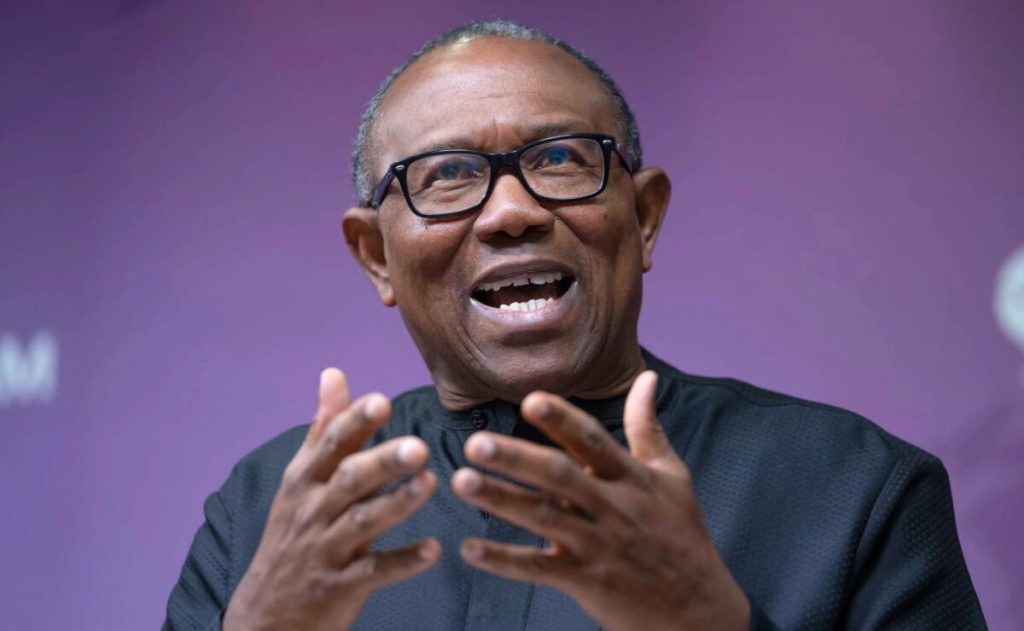
Former Labour Party presidential candidate, Peter Obi, has condemned the Senate’s refusal to make electronic transmission of election results mandatory, saying the move further exposes Nigeria as a fantastically corrupt and disgraced country.
Obi expressed his views in a statement shared on X on Friday, where he accused lawmakers of deliberately weakening Nigeria’s democratic process ahead of the 2027 general elections.
He explained that his reaction came after a brief pause to mourn victims of a deadly tragedy in Kwara State, where over 150 people reportedly lost their lives.
“Let us first pray for the souls of the innocent Nigerians lost in Kwara. That painful incident is why I delayed responding to the shameful development surrounding our electoral system,” he wrote.
Describing the Senate’s decision as intentional and dangerous, Obi said rejecting mandatory electronic transmission was not a simple oversight but a calculated attempt to block transparency.
“The Senate’s open rejection of electronic transmission of results is an unforgivable act of electoral manipulation ahead of 2027,” he said.
According to him, the action strikes at the heart of democracy and raises serious questions about the true purpose of governance in Nigeria.
“This failure to pass a clear safeguard is a direct attack on our democracy. By refusing these transparency measures, the foundation of credible elections is being destroyed. One must ask whether government exists to ensure justice and order or to deliberately create chaos for the benefit of a few.”
The former Anambra State governor linked the post-election controversies of the 2023 general elections to the failure to fully deploy electronic transmission of results, insisting that Nigerians were misled with claims of technical failures.
“
The confusion, disputes and manipulation that followed the 2023 elections were largely due to the refusal to fully implement electronic transmission,” he said.
He added that the so-called system glitch never truly existed.
Obi compared Nigeria’s electoral process with those of other African countries that have embraced technology to improve credibility, lamenting that Nigeria continues to fall behind.
“Many African nations now use electronic transmission to strengthen their democracy. Yet Nigeria, which calls itself the giant of Africa, is moving backwards and dragging the continent along.”
He criticised Nigeria’s leadership class, saying the country’s problems persist not because of a lack of ideas but because of deliberate resistance to meaningful reform.
“We keep organising conferences and writing policy papers about Nigeria’s challenges. But the truth is that the leaders and elite are the real problem. Our refusal to change is pushing the nation backwards into a primitive system of governance.”
Warning of the dangers ahead, Obi said rejecting electronic transmission creates room for confusion and disorder that only serves the interests of a small group.
He also recalled past remarks by foreign leaders who described Nigeria as corrupt, arguing that actions like this continue to justify those statements.
“When a former UK Prime Minister described Nigeria as ‘fantastically corrupt,’ we were offended. When former US President Donald Trump called us a ‘disgraced nation,’ we were angry. But our continued resistance to transparency keeps proving them right.”
Obi warned that Nigerians should not accept a repeat of the electoral irregularities witnessed in 2023.
“Let there be no mistake. The criminality seen in 2023 must not be tolerated in 2027.”
He urged citizens to be ready to defend democracy through lawful and decisive means, while also calling on the international community to closely monitor developments in Nigeria’s electoral process.
“The international community must pay attention to the groundwork being laid for future electoral manipulation, which threatens our democracy and development,” Obi stated.
He concluded by expressing hope that change is still possible if Nigerians take collective responsibility.
“A new Nigeria is possible but only if we all rise and fight for it.”
-
Business1 year ago
US court acquits Air Peace boss, slams Mayfield $4000 fine
-

 Trending1 year ago
Trending1 year agoNYA demands release of ‘abducted’ Imo chairman, preaches good governance
-

 Politics1 year ago
Politics1 year agoMexico’s new president causes concern just weeks before the US elections
-

 Politics1 year ago
Politics1 year agoPutin invites 20 world leaders
-

 Politics1 year ago
Politics1 year agoRussia bans imports of agro-products from Kazakhstan after refusal to join BRICS
-
Entertainment1 year ago
Bobrisky falls ill in police custody, rushed to hospital
-
Entertainment1 year ago
Bobrisky transferred from Immigration to FCID, spends night behind bars
-
Education1 year ago
GOVERNOR FUBARA APPOINTS COUNCIL MEMBERS FOR KEN SARO-WIWA POLYTECHNIC BORI



